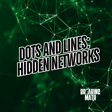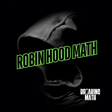Become a Creator today!Start creating today - Share your story with the world!
Start for free
00:00:00
00:00:01

Minisode 0.2: What's Up, Bangalore?
Jonathan and Gabriel discuss everything Bangalore, evolutionary algorithmic, and more!
---
This episode is sponsored by
· Anchor: The easiest way to make a podcast. https://anchor.fm/app
Support this podcast: https://anchor.fm/breakingmathpodcast/support
---
This episode is sponsored by
· Anchor: The easiest way to make a podcast. https://anchor.fm/app
Support this podcast: https://anchor.fm/breakingmathpodcast/support
Transcript
Introduction to Chumba Casino
00:00:00
Speaker
Hey guys, it is Ryan. I'm not sure if you know this about me, but I'm a bit of a fun fanatic when I can. I like to work, but I like fun too. It's a thing. And now the truth is out there. I can tell you about my favorite place to have fun. Chumba Casino. They have hundreds of social casino style games to choose from with new games released each week. You can play for free anytime, anywhere, and each day brings a new chance to collect daily bonuses. So join me in the fun. Sign up now at ChumbaCasino.com.
00:00:30
Speaker
Hello, it is Ryan, and we could all use an extra bright spot in our day, couldn't we? Just to make up for things like sitting in traffic, doing the dishes, counting your steps, you know, all the mundane stuff. That is why I'm such a big fan of Chumba Casino. Chumba Casino has all your favorite social casino-style games that you can play for free anytime, anywhere, with daily bonuses.
00:00:51
Speaker
That should brighten your day a lot. Actually, a lot. So sign up now at ChumbaCasino.com. That's ChumbaCasino
Breaking Math Podcast's New Website
00:01:15
Speaker
I mean, I guess you could go to the new website, http colon slash slash breaking math podcast dot a P P with no www for all you old timers. So breaking math podcast dot app. I mean, if you're into that sort of thing.
00:01:21
Speaker
.com.
Starting a Podcast with Anchor
00:01:35
Speaker
Hey, breaking math fans. First, I want to thank you for listening. I have an important message for everyone. You can start your own podcast right now with Anchor. Anchor lets you create and distribute your own podcast. Just get an idea, record, and upload. It's just that easy. Anyone can do it. I'm on my way to accomplishing my dream, and you can too. Just get on your device's app store and download Anchor. It contains everything you need to make a podcast. With Anchor, you can put your podcast on all the big platforms.
00:02:04
Speaker
Apple Podcast, Spotify, Google Podcast, Amazon, and more. Reach the whole world with Anchor. Best of all, Anchor is free. You have nothing to lose with a free platform. Download the Anchor app or go to anchor.fm to get started.
Life and Cultural Evolution
00:02:30
Speaker
Out of a disordered soup, in the inherent darkness of primordial form, life was wrought by chance on Fortune's anvil. From there, it was hardened by the forge of evolution. Why are we telling you this? Because we are, in our own way, evolving.
00:02:47
Speaker
We careen through the medium of thought, rivulets of intention, each changing course with the topography of the oft-wrestless geography that we call culture. It is in this brutal jungle of memetics that we find ourselves piercing through, with a machete of adaptivity, and in the process, creating greater and loftier works of art, each embarrassing the other with the pride of novel creation that the splendor of evolution is there to. O weariness! O joy!
00:03:14
Speaker
Was that flowery enough? I'm sorry, dude. I'm sorry. I couldn't even hold it in there. I was about to break out laughing. I literally had to stifle that laugh.
Mini-Sode Format and Audio Quality
00:03:25
Speaker
So was it good? It was something else. You know, I think honestly it was probably a little over the top. You could probably afford to kick it down just a notch. Either way, we have another minisode for you today.
00:03:38
Speaker
Um, just to clarify, are, so are we still sticking with the name mini soda? Yes. The following clips are not studio quality recordings. They are onsite discussions. Hello and welcome to a brand new mini soda. I'm very, very excited about this one. This is our second mini soda. Perhaps our listeners are now seeing a pattern. Yes. Um, the patterns that we released mini sodas.
00:04:03
Speaker
Yeah, exactly. Essentially, I have some fun things to tell our listeners. We now actually, we have purchased a brand new microphone. That's why we sound better. Yes, our previous mini so you may have realized was done on just our computers, our Apple computers, our MacBook Pro from 2012. Yep, and now we have a microphone from 2017.
00:04:27
Speaker
Yes. So we are very excited and we are happy that we can now provide better sound quality. Now we're not in studio right now. We're in my room at home, but that's okay. Yes. It's a studio of sorts. We'll call it that. Yeah. Now with this Minnesota, we're very excited.
Understanding Evolutionary Algorithms
00:04:41
Speaker
See, we want to talk about our next episode. Our next episode is going to be about something called evolutionary algorithms.
00:04:50
Speaker
Yes. And we're excited about this one because Gabriel, do you want to tell them about the project? You know, I certainly would be. So you guys may know if you've read my biography on the Breaking Math website that I'm currently a graduate student in electrical engineering and I have relied very, very strongly on Jonathan as my tutor for computer science. Jonathan has his degree in computer science. So I'm sorry, I interrupt you, Jonathan. Go ahead. I was going to say I do. I wasn't going to say anything of value.
00:05:16
Speaker
No, it's great. Yes. Yes, he does. And of course he is he's the one who's designed many of the applets on our page like the hypercube or the other chaos applets which are very very cool. Now, if you haven't checked out the hypercube, check it out. Yeah, that's true. Our last in fact, our last minisode was all about about hyper cubes without further ado without further ado.
00:05:35
Speaker
Our next episode is about something that I'm doing for my master's degree project. It is on evolutionary algorithms. This is a topic that excites me greatly. You heard in the intro, the flowery intro that Jonathan did, it was all about Darwinian evolution. In recent years, that has been a really, really big thing in the world of computer programming. Jonathan, do you want to tell our listeners a little bit about that? Sure. When computing started, it was largely mathematically inspired.
00:06:03
Speaker
After a while, it became inspired by physics, and as computing got more complicated, it was inspired by biology. Now evolutionary algorithms go back to the 1960s, and they work on the same process as natural evolution. You get a bunch of specimens, give them the ability to breed with one another, and just rate them by how good they are, and let nature take course, basically, but on a computer.
00:06:29
Speaker
Yes, and this is something that I was thrilled to learn about and the fact that I got to implement this in my electrical engineering master's degree has been one of the most thrilling things that I've done so far. Now, real quick, there are many resources available for a layman or for somebody who's not familiar with an evolutionary algorithm.
Evolved Antennas for NASA
00:06:50
Speaker
Uh, there's an antenna that was designed, uh, for a spaceship, uh, that NASA used, uh, the, the space technology five mission, the ST five mission that lost in 2006 had an evolved antenna. Now, why was it that they had an evolved antenna as opposed to just a regular antenna? Uh, is because, I mean, there's a lot of, this is your field and you realize that obviously antennas are difficult to design. Yes. Oh, I'm sorry. I was asking for, you know, on behalf of people who don't know, yes, I know the answer of course.
00:07:20
Speaker
Oh yeah, I mean with antennas you have directions that matter a lot of design parameters and when you're dealing with something that requires a lot of design parameters, why not have the computer just design it for you?
00:07:31
Speaker
Yeah, yeah. Now, again, for our listeners, I think the first article that I read a long time ago was actually the Wikipedia article on Evolved Antennas. It has some great pictures. And Evolved Antenna does not look like a regular antenna. The way I described it is it looks like maybe, say, a wire coat hanger was ran over by a truck a few times. Yeah, pretty much. It looks like something drawn by Dr. Seuss.
00:07:59
Speaker
Yes, or or you know, it's it's fractal, you know, like it's and it's not to be confused with a fractal antenna So basically it's it's a wire antenna, but it has unpredictable Angles and turns and it's something that that a human probably in all likelihood would not design however what's fascinating about an evolved antenna is it does something that no other antenna does and
00:08:23
Speaker
When you're creating an evolutionary algorithm, we know that in Darwinian evolution, it works on the principle of survival of the fittest or rather the species that can survive long enough to reproduce and can do so with the most success will have the longest, will have the greatest, I'm sorry. The more genes passed on. Thank you, thank you. I'm sorry, I'm having trouble describing that.
00:08:48
Speaker
Now, with an evolved antenna, it's slightly different.
Applications of Evolutionary Algorithms
00:08:51
Speaker
What you start off with is you make an evolutionary algorithm that's based on being able to describe an antenna with numbers in a matrix or in an array. Basically, you start out with a description of what it is. That's called the genotype.
00:09:10
Speaker
and the way that you translate, okay, so there's a difference between a blueprint and a house. The house would be the phenotype, the blueprint would be the genotype, and you give the ability to breed with one another. And with the project that Gabriel's doing, it circuits breeding with one another. But I think before we talk any more about evolutionary algorithms, shout out to Bangalore!
00:09:31
Speaker
Oh my gosh. Yes. Yes. Bangalore. Yeah. We, uh, we, we, we, we just saw you guys pop up on, on our data. Just this last week, Jonathan and I, um, purchased the, uh, what do you call it? The sound cloud premium pro. Yes. Yes. Unlimited. Something like.
00:09:46
Speaker
Previously, as you guys know, we released on iTunes as well as on SoundCloud. When you upgrade your SoundCloud storage, you get access to a lot more information. We found out the specific cities that have been downloading breaking math episodes. We found this very, very exciting. I think our number one city overall, of course, is our hometown. What's up, Albuquerque? No, it's Bangalore. Really? Oh my goodness. Let's pull that up, shall we?
00:10:14
Speaker
Yes. Well, while he's pulling that up, I'm going to give you a few facts about Bangalore that we learned. It's been settled for over 6,000 years. It's had burial ground for 3,000 years. And its modern history can be traced back for 500 years. So it has a lot of history.
Acknowledging Global Listeners
00:10:31
Speaker
My goodness. So how far away is Bangalore? I mean, we know it's in India, obviously. It's like in the tip of India at the bottom.
00:10:39
Speaker
as part of, I want to say, Misori. I don't know how to say that.
00:10:47
Speaker
Yeah. It's like a state of India. Okay. I'm sure I'm butchering this. Okay. Goodness. Yeah. You know, it'd be awesome as if a few of our listeners in Bangalore, uh, uh, gave us a shout out on Facebook. I mean, I'm not gonna, um, I don't know. I, I, we'd love for you guys, uh, who listened to us. We'd love to hear about your cities. I mean, we're, we are really honored with the fact that, you know, we are being played in other cities and we'd love to hear from you guys. And of course, uh, one city that tied with our hometown is Davidson, uh, North Carolina.
00:11:15
Speaker
Davidson, North Carolina. Yes, it actually 10,000. Yes, you know, and in preparation for this podcast, we thought, you know what, since we have some listeners in Davidson, North Carolina, let's learn a little bit about about that town. And so we Google Davidson and you guys actually have a usable government website.
00:11:33
Speaker
Can we just give a hats off to the website and the web designers of Davidson? We are very, very impressed with your website. We've had a lot of other websites that frankly speaking appear as though they're designed by someone in the government. Yes. And yeah, one thing that I bet everybody in Davidson loves doing with.
00:11:51
Speaker
your 23 Rhodes Scholars in your history since the 1830s, chilling out on Lake Norman. Is that a thing you do? I don't know if that's a thing you do. I know. 23 Rhodes Scholars, that's extremely impressive. Okay, so let's, again, in case any of our listeners are less familiar, a Rhodes Scholar is... It's like a scholarship that's been given out since 1905. Okay, right. And, you know, for instance, if we were to compare it to somewhere else, we have... Well, they only give out like three a year. Some years they don't give out one.
00:12:19
Speaker
Wow. So Davidson, North Carolina, wow, you guys are extremely educated and extremely cultured. So yeah, we're happy to have you. Yeah.
New Mexico's Green Chili Culture
00:12:30
Speaker
So back to evolutionary algorithms. Oh, right, right. And you know what? Sorry, if you don't mind, I'm interrupt. We also noticed on our SoundCloud stats, we've got some listeners in Wisconsin and Melrose, Wisconsin. What's going on, Melrose? How are you doing? We also have some listeners in Washington, D.C.
00:12:47
Speaker
We were thrilled with that. So all of our listeners, again, we'd love some interaction. We'd love to learn more about your town.
00:12:56
Speaker
Oh, yeah. One thing about Albuquerque where we record is we have green chili that Colorado stole from us. Sorry, Colorado listeners. OK, you know, you know, and again, I'm not I'm not trying to start anything here. You know, OK, you know, yeah, I was going to say I'm not trying to start anything, but but Colorado clearly stole green chili from New Mexico. I mean, there's no doubt about that.
00:13:18
Speaker
Oh yeah, green chili is ours and it always will be. You know, one more thing on the green chili thing. So I've spoken to a lot of folks who are new here and a lot of folks have heard of green chili. So if you can search for it online and search New Mexico green chili, it's a plant. It looks like a shriveled. It's an immature chili plant. Yes. So it looks like a shriveled, how would you describe it? Almost like a bell pepper. Yeah, like if you took a straw and took all the air out of a bell pepper.
00:13:47
Speaker
Yes, exactly. And it's known for its spice and it adds a lot of flavor to food. We actually put green chili on everything, by the way. Including ice cream and brittle. Okay, for the record, I've never put green chili on my ice cream. No, no, they make green chili ice cream.
00:14:04
Speaker
You know, but I know that we're trying really hard to let other folks know what Albuquerque, New Mexico is known for besides the show Breaking Bad. Yeah, well, we also have Green Chili and we are home of a baseball team called the Isotopes and we are named after a Simpsons episode.
00:14:20
Speaker
Yes, but yeah, ready to talk about the evolutionary algorithm. Thank you. I'm so sorry. Yes. Okay. It's okay. Yes. Yes. So we're not going to go into great detail here. We thought it would be really neat after I defend my master's thesis. We'd actually like to do an entire we were talking about doing a longer episode all about evolutionary algorithms.
00:14:41
Speaker
So in general, you know, when you have the the ability to describe something or to model it in a computer with numbers, you can model a variety of things like antennas and you can even have a successful way of breeding them. And it's very simple. You just have a couple. So what's the problem that you're trying to solve with this?
00:14:58
Speaker
Oh, that's a good question. Why do we have an evolutionary algorithm? So I think when you do your research on evolutionary algorithms, they say that these are really good for nonlinear problems, problems where it's very difficult to think of a traditional or a straightforward solution. And because this problem is approached iteratively and slowly over time,
00:15:23
Speaker
It'll have a very good solution. It may not have the optimal solution because the optimal solution may be pretty much impossible to arrive at. Yeah. And those are the kind of problems. You don't want to solve something that's very linear with an evolutionary algorithm. It's not very efficient. Let's give you guys some concrete examples here. Oh, yeah. Well, you had the example of a oh, we had the you actually find this on YouTube. Google evolutionary algorithm clocks.
00:15:51
Speaker
Oh my goodness, there's a phenomenal video on YouTube. There's a gentleman who wrote an evolutionary algorithm that started with, I think it was just a couple of base parts, you know. Oh yeah, he had stoppers, gears, hands, and levers. Okay, and I wonder if we should actually find his name. You know, we could, we could give him a shout out. I'll find it, yeah. Sure.
00:16:12
Speaker
Okay, so what's wonderful about this example is essentially he shows that when you start with some basic components and some basic rules, like these parts have an affinity for each other. You can have, you know, like the pendulum or, you know, like be attracted to a gear, things like that. CDK007.
00:16:31
Speaker
Okay, yeah, so actually we are giving a shout out to the YouTube profile, CDK007. We were very, very impressed with your evolutionary algorithm. And what's also really cool is, so when you start with these basic parts, he describes it, I believe it's a gentleman, yes? I think so. Okay, I need to clarify that.
00:16:53
Speaker
He says that these parts have an affinity for each other. That is to say, a gear will be attracted to a rod, but it's attracted to all of it, not one specific part. There's nothing in this evolutionary act. It's very undirected. Yes, yes, and that is so important to say in this because evolution itself is an undirected process.
00:17:11
Speaker
And of course, the problem that you're trying to solve has to do with voltage patterns. Yes, that's mine for circuits. So real quick, on this YouTube video, you get to watch over time how clocks and very, very high functioning clocks evolve over time. It's a lot of time and you even have this massive, massive age of pendulums where the only kind of functional clock you have are pendulums.
00:17:31
Speaker
But when, you know, chance happens and you have a very unlikely event of a gear breeding in the right spot and you've got the right mutation, you know, after several generations, you'll have the correct parts suddenly emerge where you can have a fully functional clock.
00:17:47
Speaker
It really is cool. You rate these clocks by how clocky they are. Yes, there's some criteria. Now, I think one of the differences between Darwinian evolution and this evolution is clearly this evolution that is programmed is selecting specifically for a clock. Yeah, think of it like breeding sheep from the stuff that sheep used to be. If you've ever seen a picture of the animal that sheep are derived from, they have long hair, they don't have wool, and they're not very dumb.
00:18:16
Speaker
Yeah, exactly. Now, there's actually a lot of examples of evolutionary algorithms, not only the clock, I think. So neural networks. Yes, neural networks use those all the time. I'm less familiar, other than seeing the massive quantities of research on neural networks, I'm a little bit less familiar with them as a whole. Can you tell us a little bit about them?
00:18:35
Speaker
Neural networks are a way of coming up with nonlinear solutions to things. A neural network, for example, a certain type of neural network called a convolutional neural network works on pictures. And if you've ever seen Google's deep learning algorithms on pictures, if you've ever seen a really trippy looking picture with like a dog where a nose should be or something like that, that's produced by a neural network.
00:19:02
Speaker
Now, the obvious thing is this. So the term neural networks is made, it is named after our neurons. Oh yeah, they're designed after a simplified version of a neuron. Yeah, yeah. So, you know, again, it's the same idea as in some sense trying to approximate the way that humans think as opposed to the way machines think for things like learning about the world and having other models that are helpful.
00:19:29
Speaker
Well, the thing about neurons and why they're a good model for this is because their neurons or just nerves in general are used for extremely weird different purposes. There are neurons that regulate heartbeats, for example, and those are completely different.
00:19:44
Speaker
Instructure than the neurons that regulates for example concrete thought even though they work in about the same way They work basically have a bunch of neurons connected to a neuron They have a little bit of electricity when the electricity reaches more than a certain level the neuron pulses That's all that does and with this you're able to
00:20:02
Speaker
listen to this podcast. Yes, I find that to be one of the most fascinating topics. You know, there's a problem in trying to talk about human consciousness that is oftentimes referred to as the hard problem. And again, it's so hard for us to really comprehend human consciousness, because again, a single neuron is not conscious.
00:20:22
Speaker
Yeah, that kind of tells you a lot about evolutionary algorithms and a lot about the circuits that we're designing with Gabriel's project. They are designed to simulate, or not simulate, to output a specific voltage signal, and they use capacitors, resistors, and inductors towards this goal.
00:20:45
Speaker
Yeah. Yeah. But another thing I think that we need to talk about is our future podcast endeavors. Oh, you know, absolutely. I think that's that's a great idea. So I thought it was very important to address this issue in our our mini-sodes. So we have created a series of episodes with breaking math so far. And of course, you can listen to our episodes one through nine. I'm sorry. I'm sorry. Thank you. One through seven. I'm getting ahead of myself.
00:21:09
Speaker
And you can see clearly what we're about so far. I think it's very important to tell our listeners where we want to go. Oh, yeah, definitely. And we have a podcast that's going to be coming out in about a month called Teacher Feature.
00:21:22
Speaker
Yes, we actually have another podcast altogether, one that is separate currently from Breaking Math. Although it'll be on the same channel. Yeah. Now, since this is a minisode, I'm excited because this is a quick chance where instead of delving into a single topic, you know, a single mathematical topic, we can talk about more or less about why we choose these topics and about what else we're doing.
00:21:44
Speaker
Now, we mentioned that we're doing another podcast, and yes, the podcast is called Teacher Feature. I want to back up for just a little minute and tell you guys where this came from. So, Breaking Math itself, oh goodness, it's already 19 minutes. Yeah. We won't take too much more of your time. Thank you. No, we will not. We're going to keep this guy really, really short. It'll be under 25 minutes guaranteed.
00:22:04
Speaker
So in planning for breaking math one thing we realized is why is it that we got very passionate about mathematics to begin with well and i think for a lot of us we had great great teachers and as we began to talk about these teachers and what inspired our love for mathematics we thought you know it would be really great to actually talk about education.
00:22:23
Speaker
Now, we came up with the name Teacher Feature because obviously the name is pretty catchy and we like it and also because of things like Facebook, we're in touch with a lot of our old teachers who have a prolific presence on social media and that I think is wonderful. But with education, we are very passionate about that subject and we believe that everybody, everybody should be passionate about it as well.
00:22:47
Speaker
Oh yeah, we have a Patreon. Oh, thank you. Was that subtle enough? Oh, that's right, that's right. So the reason why we, one other reason why we bring up the fact that we're doing another podcast on Teacher Feature is soon you guys are going to realize that this is going to be currently released on the same channel. We don't want to do that all the time and I think that ideally we would have a separate channel for each of our podcasts.
00:23:10
Speaker
Yeah, but you know, it's there's hosting costs and stuff like that. So we want to tell you a little bit of incentives. Yes. For five bucks, you'll get early access to the podcasts and even a shout out on them.
00:23:22
Speaker
Yes, absolutely. Yeah, so again, if you go to patreon.com, that is a way to support us. And, you know, sorry, I got to edit that quick part out. For $5, you do get a shout out. For $50, Jonathan Baca will create a customized personal Photoshop piece for you. Now, this is not for business. This is for personal. Yeah, it's for fun. This is part of my
00:23:49
Speaker
This is part of my income, so I insist that it's not for business. But, you know, if you want, I don't know, the world is your oyster. Yes, yeah, we can make you a phenomenal personalized poster. And in case you're wondering about Jonathan's quality of work, all of the work that's currently done on the Facebook page that's Photoshop is Jonathan's. And it's just gorgeous. I think it's phenomenal.
00:24:14
Speaker
Thank you. And I do the covers for Breaking Math as well. Yeah, he does. He's quite the artist, quite the Renaissance man. Now we want to say that if we have a listener who wants to give more than $50, if you want to give $100, then we will allow you to collaborate on planning an entire mathematics podcast.
00:24:36
Speaker
Yes, and the price is a little high, but we value our independence. Yes. I'm sorry, I said mathematics podcast, an entire Breaking Math podcast episode. Yes. Yeah. Now, real quickly, though, I just wanted to add, we thought it might be most beneficial for our listeners and for us to be very explicit about why it is that we have a Patreon.
00:24:55
Speaker
right now we we are two students and we we uh you know uh we dedicate i would say probably right now on average between five and ten hours a week on preparing for the breaking math episodes and the yeah and we really enjoy it we want to keep doing it but not only do we want to keep doing it we want to um
00:25:16
Speaker
expand our SoundCloud account and have content every week instead of every other week, which we've already started, of course. Oh yeah, with these mini-sodes and pretty certain teacher feature. I think teacher feature will be great. Oh, and you know what? I know we jumped around topics a little bit, and I'm sorry. I wish I had said this previously, but I'm just going to say it real quick.
00:25:37
Speaker
with education and with issues. There are fantastic, magical, amazing stories with education and when it goes very well. And there's also very real struggles with education. There's a lot of people who in the education system have a really tough time, whether that be learning a topic like mathematics or science, or whether it's socially, because one size does not fit all.
00:26:00
Speaker
Yeah, for example, like the bad example is I had a not too good statistics teacher and I did not have a positive view of statistics from the age of 12 to 16.
00:26:12
Speaker
Wow. Yeah, that's a very good example. It can really turn you off of a subject as well. I have a lot of experience goodness. I have stories of when I was a brand new teacher. Do you guys know that teaching is hard? Yes, it is. It is hard. My heart goes out to a lot of teachers and learning the craft of how to become very effective at teaching is
00:26:30
Speaker
quite an uphill climb but a very, very noble and worthy climb. So we wanted to have a podcast and we wanted to be as real with our listeners as possible. Since we're all invested in education, we want to talk about both the amazing aspect and the absolute challenges. Our first episode was great. We had my old high school English teacher who was an award-winning teacher. He was awesome.
00:26:49
Speaker
Yeah, he's got 30 years on him. So you'll hear that episode coming up soon. I think that we haven't already recorded. We have to edit it. We also want to put together a beautiful website because our teacher, we really enjoyed his presence and we want to put together a nice blog online. I think that'll probably if we're to put a date probably toward the end of May, I believe. Yes. Yeah. And if you've noticed a dearth of Facebook content, it's because we've been working very hard on this project. Yes, yes, absolutely.
00:27:17
Speaker
Now, so we do appreciate, thank you for taking the time and listening to us as we talk about our Patreon and our goals for this podcast. I think there's one more thing I want to talk about though. Yeah, no, I realize that. Oh, on the last formal podcast, QED, we had a challenge for our listeners. The challenge was on a proof, a triangle proof. We gave you guys a problem to prove and we are sitting on the solution. We have the solution.
00:27:46
Speaker
Yes, and a little hint towards anybody who's working towards a solution, and it's harder than it looks, is imagine, I'm just gonna tell, give you this visual image and leave you with it, imagine a ladder sliding down another ladder. Two ladders are on opposite sides of a room, and one of them is balanced on the other one, and you move the other, just imagine that.
00:28:08
Speaker
Yeah, I like that proof. I'll tell you this. I was not able to solve the proof myself. You can find the proof. It's the last blog we have. Just go to breakingmath.com and look at the blogs. Breakingmathpodcast.com. Thank you. I'm so sorry. I stand corrected. Just go to breakingmathpodcast.com and click on the blogs.
00:28:25
Speaker
And we realized that we are at 26 minutes. But still, please go to our Patreon page at patreon.com slash Breaking Math Podcast. Yes, thank you. We appreciate your feedback and we look forward to making great content for you guys. So this has been a Breaking Math Minisode. Minisode? Sure. And we're not reading this. No, we're not. This is totally off the cuff. Off the cuff it is. And be sure to turn in on odd Tuesdays for full episodes of Breaking Math.
00:28:55
Speaker
I'm Jonathan. And I'm Gabriel. And this has been made possible with the support of KUNM Generation Listen.



















